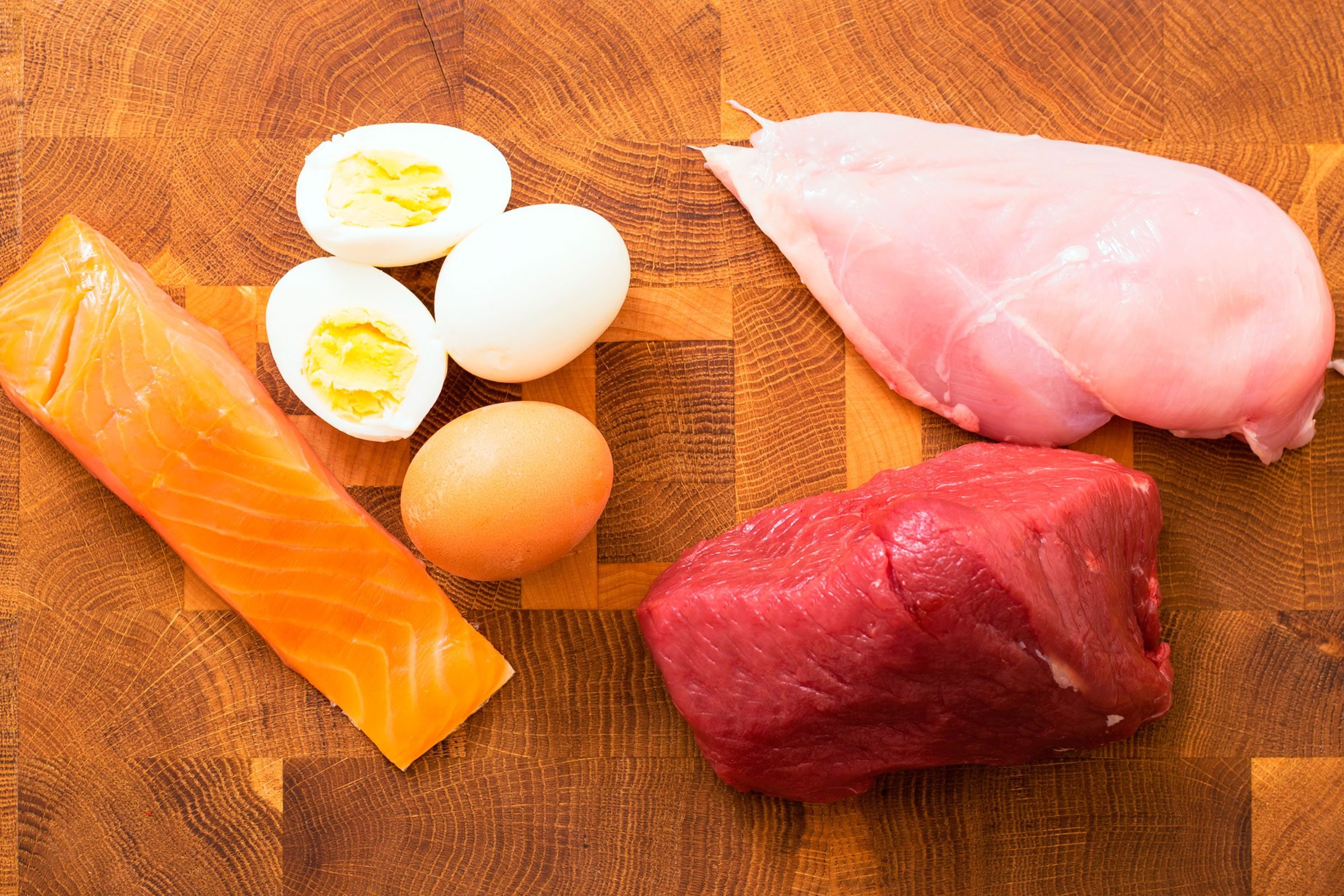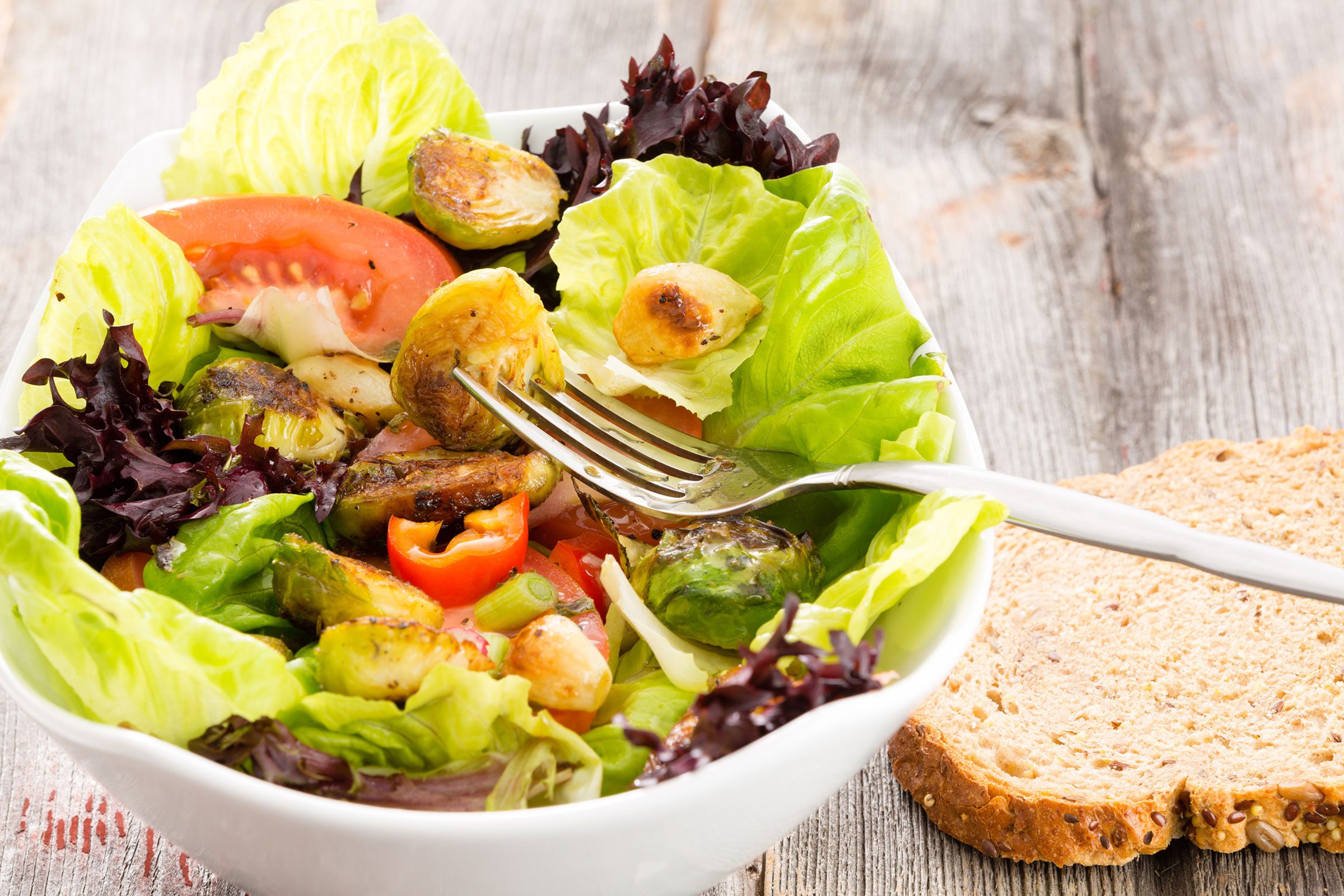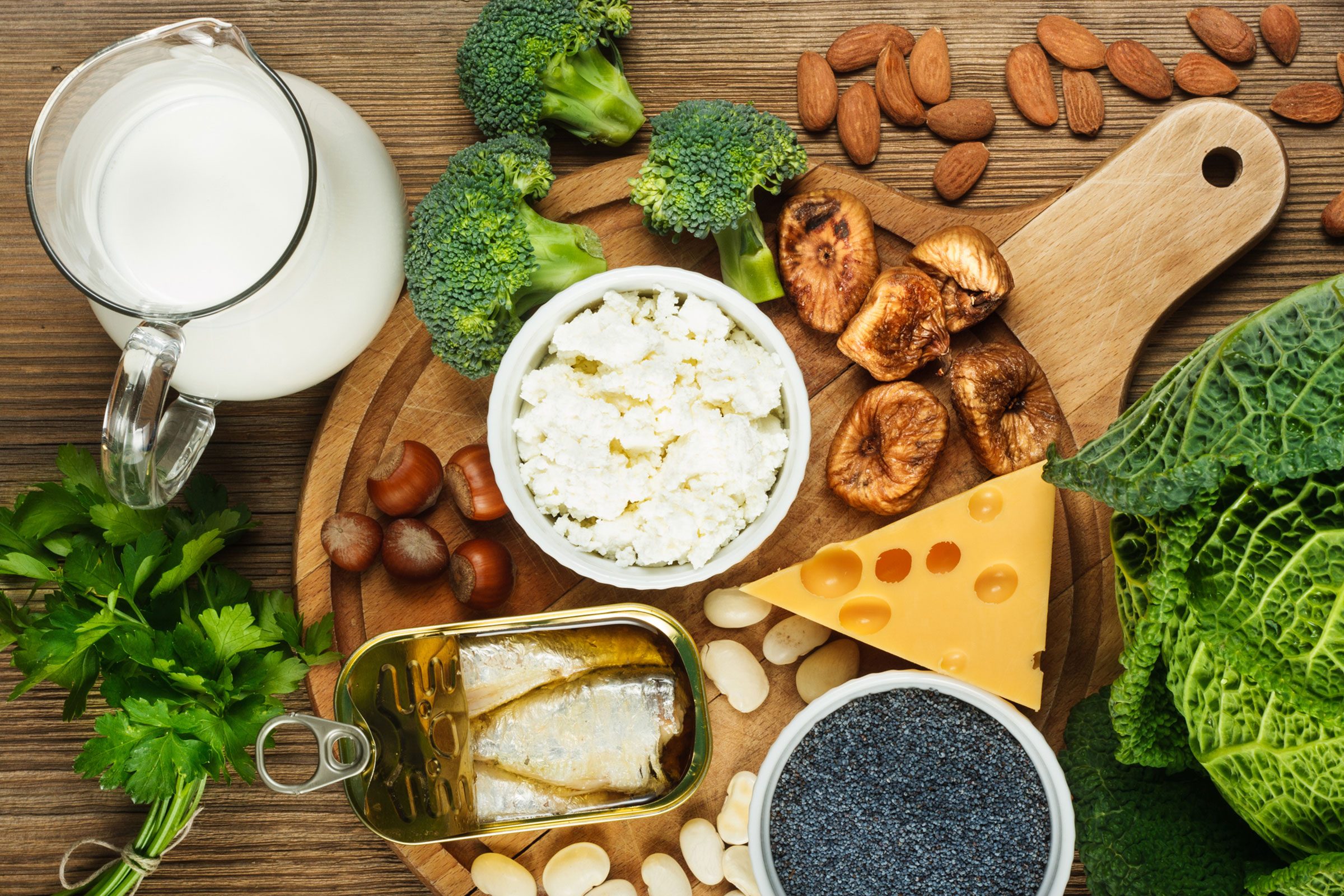Bravo for nixing meat: a kindness to animals and a proven way to help ward off diseases from heart disease to cancer. The downside: a tendency to run low on some key nutrients. Here's what you might be missing and how to stock up without taking a single bite of a burger.
Vitamin B12

Most Americans don't eat enough vegetables, so you'd think vegetarians would be the healthiest people around. It's true that reducing red meat consumption can lower your risk of heart disease, and a vegetarian diet may also lower your risk of diabetes, high blood pressure, and even cancer. But studies have shown that vegetarians and vegans (those who don't eat any animal-based products, including dairy and eggs) also run the risk of deficiencies in certain nutrients, notably not getting enough vitamin B12. "Vitamin B12 is important in maintaining appropriate brain functioning and blood flow throughout our bodies and is mainly found in animal products, which is why someone following a vegetarian or vegan lifestyle may develop a deficiency," explains Amanda Hostler, a dietetic intern at The University of Texas Health Science Center at Houston (UTHealth) School of Public Health. "Vitamin B12 deficiency occurs as the disease megaloblastic anemia, characterized by a low red blood cell count, with the red blood cells being larger than normal." Symptoms include fatigue, disorientation, memory loss, and rapid heart beat. To make sure you're getting enough B12, try having nutritional yeast, soy milk, fortified ready-to-eat cereals, and (if you eat some animal products), dairy, eggs, fish, and shellfish. While whole foods are the best source, supplements can assure the adequate intake of 2.4 micrograms a day, especially if you're vegan.
Zinc
 You may have heard that zinc is important in warding off colds—and in fact, this mineral plays a role in regulating the body's immune system. But it can be hard to get it naturally if you're a vegetarian. "Since zinc is found in limited amounts in plant-based foods, and zinc absorption from plant-based foods is reduced, a deficiency can occur," says Erin Palinski-Wade, RD, author of Belly Fat Diet For Dummies. "A zinc deficiency may lead to an impaired immune system, slow wound healing, hair loss, diarrhea, and loss of appetite." Try food sources such as whole-grain breads, leafy greens and root vegetables, dried beans, peas, and nuts, although you may still need a supplement or multivitamin to get your daily dose of 8 mg (for women) or 11 mg (for men). But be careful—you don't want to overdo it on zinc because too much can lead to nausea and vomiting, so ask your doctor before starting. When choosing a zinc supplement, "look for brands that are USP-certified to ensure that the supplement meets purity and potency standards," Palinski-Wade says.Iron
You may have heard that zinc is important in warding off colds—and in fact, this mineral plays a role in regulating the body's immune system. But it can be hard to get it naturally if you're a vegetarian. "Since zinc is found in limited amounts in plant-based foods, and zinc absorption from plant-based foods is reduced, a deficiency can occur," says Erin Palinski-Wade, RD, author of Belly Fat Diet For Dummies. "A zinc deficiency may lead to an impaired immune system, slow wound healing, hair loss, diarrhea, and loss of appetite." Try food sources such as whole-grain breads, leafy greens and root vegetables, dried beans, peas, and nuts, although you may still need a supplement or multivitamin to get your daily dose of 8 mg (for women) or 11 mg (for men). But be careful—you don't want to overdo it on zinc because too much can lead to nausea and vomiting, so ask your doctor before starting. When choosing a zinc supplement, "look for brands that are USP-certified to ensure that the supplement meets purity and potency standards," Palinski-Wade says.Iron
According to the Academy of Nutrition and Dietetics, iron is the most common nutritional deficiency and the leading cause of anemia in the United States. The body absorbs two to three times more iron from animal sources than plant sources, so vegetarians can have a hard time getting the iron they need. "Iron has a very important role in transporting oxygen throughout our blood to maintain our energy levels," Hostler explains. Symptoms of an iron deficiency include fatigue, dizziness, headache, pale skin, weakness, and sometimes cravings for weird things, like ice and dirt. (Here are good sources of iron for vegetarians.) Vitamin C paired with iron sources can help increase absorption, so Hostler recommends meal options like bell pepper and bean salad, spinach salad with a lemon vinaigrette, or fortified cereal with berries. You may also need an iron supplement after consulting with your doctor.
Omega-3 fatty acids
If you're a vegetarian but you eat fish (specifically fatty fish like salmon, tuna, or trout), you should be good on omega-3s. But vegans need to take extra care to get enough. "Although diets without seafood may be lacking in omega-3 fatty acids, adding omega-3s such as chia seeds, walnuts, and even algae can be a good way to boost intake," Palinski-Wade says. Flaxseed and soybeans are other good options. Among the many benefits of omega-3s are their important role in brain and eye function, anti-inflammatory properties, and ability to help lower cholesterol. To make sure you're getting enough, consider a supplemental omega-3, Palinski-Wade says. "Look for high quality sources that, if coming from seafood, have had purities such as mercury and PCBs removed," she adds. "I personally recommend the Nordic Naturals line as a high-quality brand."
Vitamin D
Many Americans, especially in northern climates, are vitamin D deficient in the winter. The best source of vitamin D is the sun, and Hostler says as little as 10 to 15 minutes of sun exposure a day is enough to avoid a vitamin deficiency. "Vitamin D contributes to good bone health and boosts the body's immune system, which is why it's important to have adequate intake of it," she says. Without it, you could have weakened bones as well as an increased risk for depression and diabetes. The problem with relying on food for vitamin D is that "dietary vitamin D is provided in only a few food sources, of mainly animal origin," Hostler says. So it's one of the vitamins for vegetarians that's even harder to get enough of. Try eggs, cheese, salmon, tuna, and cow's milk; if you're vegan, try fortified orange juice, soy milk, cereal, and shiitake mushrooms. Supplements can help get the recommended 600 IU a day.
Calcium
You probably know that calcium is essential for building and maintaining strong bones. We usually think of dairy as the number one source for calcium—and although in reality there are others, Palinski-Wade says, "plant-based sources of calcium are not absorbed as well in the body, which can lead to a deficiency." Over time, low calcium can up your risk for weak bones and osteoporosis. In addition to dairy, Hostler says natural sources include collard greens, turnip greens, kale, broccoli, and bok choy, as well as soybeans, chickpeas, black beans, and almonds. You may try fortified plant-based milks, cereals, or juices too. But, Palinski-Wade says, "a calcium supplement daily is a good idea for all vegetarians and vegans, and especially for women and children." The recommended adult intake is 1,000 mg a day, or 1,200 if you're a woman over 50. "In addition, incorporating daily exercise using your own body weight can be a helpful way to increase bone strength," she says.
Protein
We associate protein with meat, so it may seem that deficiencies among vegetarians are common—but in fact, enough protein can easily be obtained in a veggie diet. "Since plant-based protein sourcesare so abundant, a protein deficiency in those following a vegetarian or vegan lifestyle is rare," Hostler says. "Plant-based protein sources typically contains more dietary fiber and less saturated fat compared to animal-based protein sources. It's important to be aware, however, that vegetarians and vegans need to consume more protein than their meat-eating counterparts because plant-based protein has a lower digestibility than animal protein." Meals like bean burritos, tofu, vegetable stir-fry, and lentil chili are protein-packed options. Legumes, whole grains, soy, nuts, and seeds, as well as dairy and eggs, are good choices, and Palinski-Wade advises eating a variety of sources in order to ensure you're getting all the essential amino acids that make up protein.
Riboflavin
This B vitamin helps convert food into energy, so Palinski-Wade says a deficiency could lead to poor energy, slowed growth, and digestive problems. Some research shows it may be even be connected to an increased risk of cancer. "Since this nutrient is found mostly in animal proteins, it's possible to fail to consume enough each day," especially for vegans, Palinski-Wade says. If you don't eat dairy products, try plant-based sources such as almonds, spinach, and mushrooms. In addition, "a daily B complex vitamin can help to fill in the gaps," she says. But, talk to your doctor to make sure you need it—B vitamins are water-soluble, so even though you'll just pee out the extra, it will cause your kidneys to work overtime. "It's more beneficial to consume your vitamins and minerals through whole foods, which provide your body with many different nutrients that work together to have a greater effect on your health," Hostler says.








Comments
Post a Comment